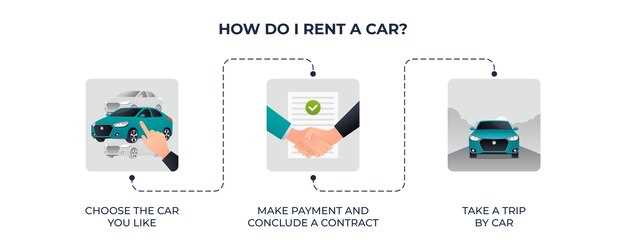Certified pre-owned programs explained


Certified Pre-Owned (CPO) programs have gained significant traction among savvy car buyers looking for reliable vehicles without the hefty price tag associated with new cars. These programs provide an appealing middle ground between purchasing a new vehicle and opting for a standard used car, typically offering a warranty that provides peace of mind to consumers. CPO vehicles undergo comprehensive inspections and refurbishment processes, ensuring they meet strict manufacturer standards before being listed for sale.
The essence of a CPO program lies in its rigorous certification process, which not only checks the vehicle’s mechanical and aesthetic condition but also its history. This often includes a detailed examination of past accidents and maintenance records. A vehicle must pass these evaluations to receive the coveted CPO designation, setting it apart from typical used cars. As a result, buyers are generally more confident in their purchase, knowing that they are investing in a vehicle that has been thoroughly vetted.
Moreover, the warranty associated with a Certified Pre-Owned vehicle frequently extends beyond the original factory warranty, providing additional coverage for various components. This added protection can be a significant advantage, alleviating concerns about potential repairs costs and helping buyers feel secure in their decision. In a market filled with choices, understanding CPO programs can empower consumers to make informed decisions that align with their budget and quality expectations.
Key Benefits of Certified Pre-Owned Vehicles

Certified Pre-Owned (CPO) vehicles provide an excellent alternative for buyers seeking quality and reliability without the premium price of a new car. One of the primary advantages of CPO programs is the comprehensive inspection conducted by the dealer. This thorough evaluation ensures that every vehicle meets stringent manufacturer standards, reducing the risk of unexpected repairs.
Additionally, CPO vehicles typically come with an extended warranty, offering peace of mind to buyers. These warranties often cover critical components and systems, which can save owners from high out-of-pocket expenses in the event of a malfunction. This increased protection is a significant draw for many consumers.
Financial savings are also a major benefit. CPO vehicles generally retain higher values compared to their non-certified counterparts. This means lower depreciation and potentially better resale value. Furthermore, financing options for CPO vehicles may be more attractive, with lower interest rates offered by dealers to encourage sales.
Another advantage is the roadside assistance that often comes with CPO vehicles. This service provides an added layer of convenience and security, ensuring that help is readily available in case of emergencies.
Lastly, purchasing a CPO vehicle from a reputable dealer typically involves access to a vehicle history report. This report offers valuable insight into the car’s past, including any accidents, service records, and title information, allowing buyers to make informed decisions.
In conclusion, the benefits of certified pre-owned vehicles include peace of mind through thorough inspections and warranties, financial savings, roadside assistance, and transparent vehicle history. All these factors combine to make CPO cars an appealing choice for budget-conscious consumers desiring quality and reliability.
Dealer Warranty Coverage Explained

A dealer warranty provides assurance to buyers of certified pre-owned vehicles that they are protected against certain defects and issues that may arise after the purchase. Understanding the specifics of dealer warranty coverage is essential for making informed buying decisions.
Dealer warranties may vary widely depending on the manufacturer and vehicle model. However, they generally cover key components and systems to enhance the buyer’s peace of mind:
- Powertrain Coverage: This often includes the engine, transmission, and drive axles, which are vital for the vehicle’s operation.
- Limited Warranty: Most dealer warranties are limited in duration or mileage. Typically, they last one to several years or until a certain mileage is reached.
- Exclusions: It’s crucial to check which components are not covered, as this can include wear items like brakes and tires.
When purchasing a certified pre-owned vehicle, buyers should clarify the details of the dealership’s warranty:
- Duration: Ask how long the warranty lasts and any conditions that might affect its validity.
- Transferability: Inquire whether the warranty can be transferred to a new owner if the vehicle is sold.
- Claim Process: Understand the procedure for filing a claim and what documentation may be needed.
- Authorized Repairs: Check if repairs must be conducted at specific dealerships or if you can use independent garages.
In conclusion, dealer warranty coverage plays a vital role in protecting your investment in a certified pre-owned vehicle. By assessing the terms and conditions of the warranty, you can ensure that you are adequately covered and that your vehicle remains reliable for years to come.
How to Choose the Right CPO Program for You
Choosing the right Certified Pre-Owned (CPO) program requires careful consideration of several key factors. First and foremost, examine the warranty offered by the CPO program. Different manufacturers provide varying levels of warranty coverage, which can significantly impact your peace of mind. Look for programs that offer an extensive warranty period that goes beyond the original factory warranty.
Additionally, assess the vehicle inspection process. A reliable CPO program should have a thorough multi-point inspection that covers essential components such as the engine, transmission, brakes, and electronics. This inspection ensures that the vehicle meets high standards of quality and performance, providing confidence in your purchase.
Another crucial aspect to consider is the overall reputation of the CPO program. Research customer reviews and ratings, and consider how long the program has been in place. Programs with a strong track record are often more trustworthy and efficient in handling customer concerns.
Lastly, make sure to evaluate the additional benefits provided by the CPO program. Many programs offer perks such as roadside assistance, rental car reimbursement, or a money-back guarantee. These added features can enhance your ownership experience and provide extra value.
In summary, when selecting a CPO program, focus on the warranty, inspection standards, reputation, and additional benefits to ensure you choose the right program that meets your needs.



